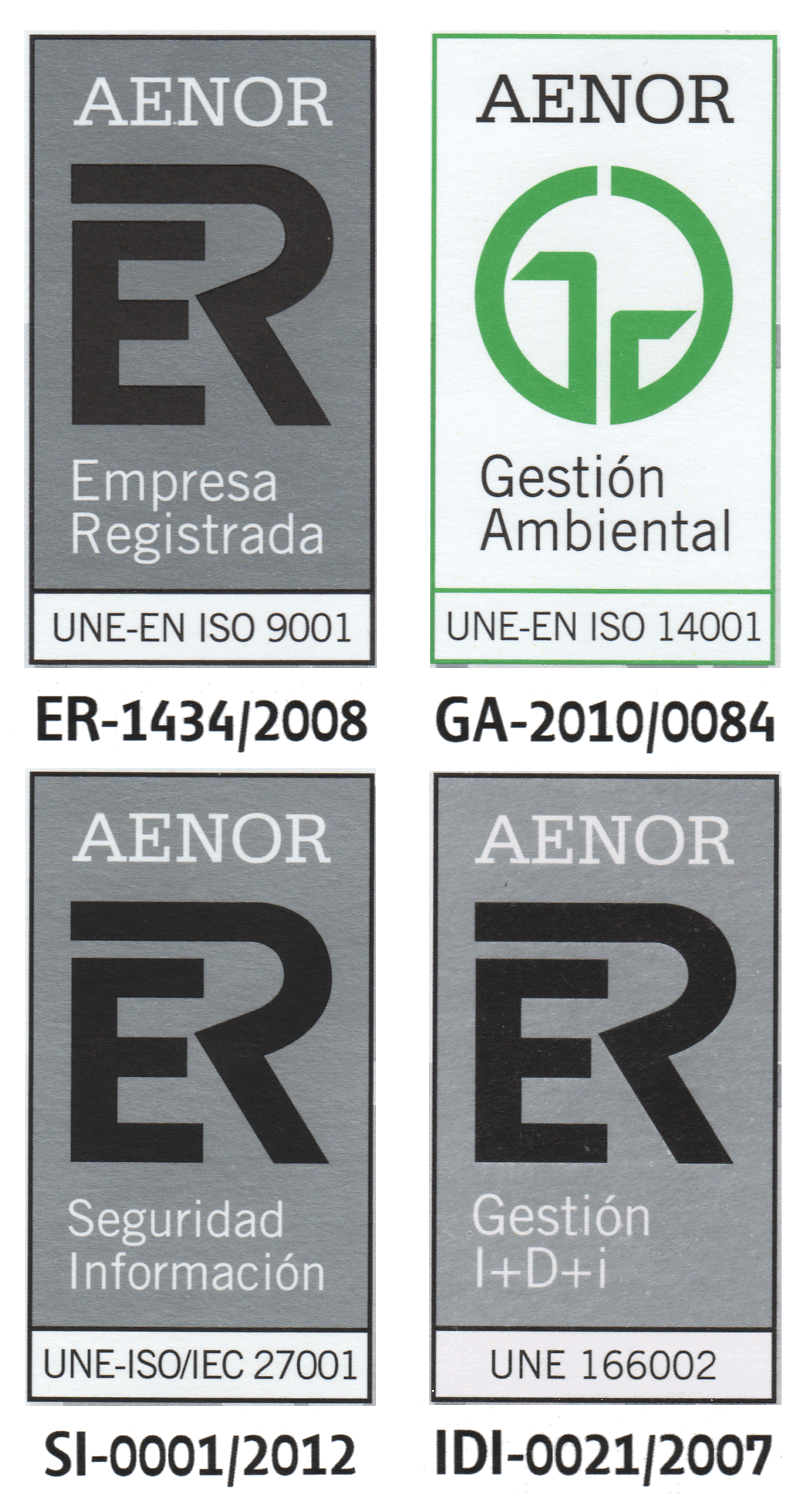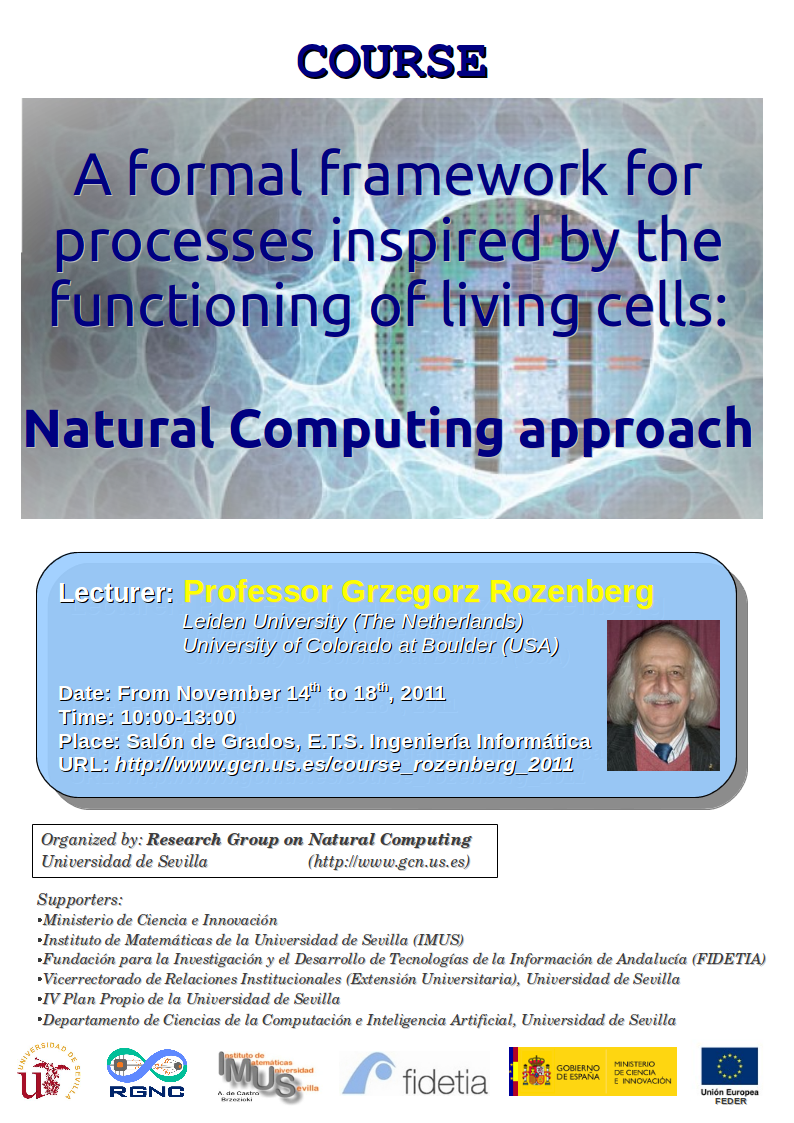A formal framework for processes inspired by the functioning of living cells: Natural Computing approach
Lecturer: Grzegorz Rozenberg (Leiden University, The Netherlands, and University of Colorado at Boulder, USA)
COURSE
Content: Natural Computing is an interdisciplinary field of research that investigates human-designed computing inspired by nature as well as computation taking place in nature, i.e., it investigates models, computational techniques, and computational technologies inspired by nature as well as it investigates phenomena/processes taking place in nature in terms of information processing.
One of the research areas from the second strand of research is the computational nature of biochemical reactions. It is hoped that this line of research may contribute to a computational understanding of the functioning of the living cell, which is based on interactions between (a huge number of) individual reactions. These reactions are regulated, and the main regulation mechanisms are facilitation/acceleration and inhibition/retardation. The interactions between individual reactions take place through their influence on each other, and this influence happens through these two mechanisms.
In this course we present a formal framework for the investigation of processes carried by biochemical reactions in living cells. We motivate this framework by explicitly stating a number of assumptions that hold for a great number of biochemical reactions, and we point out that these assumptions are very different from the ones underlying traditional models of computation. We discuss some basic properties of processes carried by biochemical reactions, and demonstrate how to capture and analyse, in our formal framework, some biochemistry related notions.
Besides providing a formal framework for reasoning about processes instigated by biochemical reactions, the models discussed in the course are novel and attractive from the models of computation point of view. This is extensively discussed throughout the course.
The course is of a tutorial style and self-contained, in particular no knowledge of biochemistry is required.
Organization: The course is suited for master and PhD students as well as for researchers and faculty members. It is of interest to computer scientists and mathematicians interested in formal models of computation as well as to bioinformaticians, biochemists, and biologists interested in foundational/formal understanding of biological processes.
Information:
- Date: from 14/11/2011 to 18/11/2011
- Time: 10:00 - 13:00.
- Place: Salón de Grados (14th, 15th and 16th), A2-11 (17th and 18th), E.T.S. Ingeniería Informática
- Language: English
Bio: G. Rozenberg received his Master and Engineer degree in computer science in 1965 from the Technical University of Warsaw, Poland. In 1968 he obtained his Ph.D. in mathematics from the Polish Academy of Sciences, Warsaw. Since then he has held full time positions at the Polish Academy of Sciences, Warsaw, Poland (assistant professor), Utrecht University, The Netherlands (assistant professor), State University of New York at Buffalo, U.S.A. (associate professor), and University of Antwerp, Belgium (professor). Since 1979 he has been a professor at the Department of Computer Science of Leiden University and an adjoint professor at the Department of Computer Science of University of Colorado at Boulder, U.S.A. He is the head of the Theoretical Computer Science group at Leiden Institute of Advanced Computer Science (LIACS), and the scientific director of Leiden Center for Natural Computing (LCNC). G. Rozenberg has published about 500 papers, 6 books, and is a (co-)editor of more than 70 books. He has been a member of the program committees and invited speaker for practically all major conferences on theoretical computer science in Europe.
His current research interests are: Natural computing, including molecular computing, computation in living cells, self-assembly, and theory of biochemical reactions. Theory of concurrent systems: theory of Petri nets, theory of transition systems, and theory of traces. Theory of graph transformations. Formal language and automata theory.
He is a Foreign Member of the Finnish Academy of Sciences and Letters, a member of Academia Europaea, and he is holder of Honorary Doctorates of the University of Turku, Finland, the Technical University of Berlin, Germany, and the University of Bologna, Italy. He has received the Distinguished Achievements Award of the European Association for Theoretical Computer Science "in recognition of his outstanding scientific contributions to theoretical computer science". He is a Honorary Member of the World Innovation Foundation. He is ISI Highly Cited Researcher.
Support: This course has been supported by:
- Research Group on Natural Computing.
- University of Seville.
- Ministerio de Ciencia e Innovación. Gobierno de España.
- Instituto de Matemáticas de la Universidad de Sevilla (IMUS).
- Fundación para la Investigación y el Desarrollo de las Tecnologías de la Información en Andalucía (FIDETIA).
- Departamento de Ciencias de la Computación e Inteligencia Artificial. Universidad de Sevilla.




